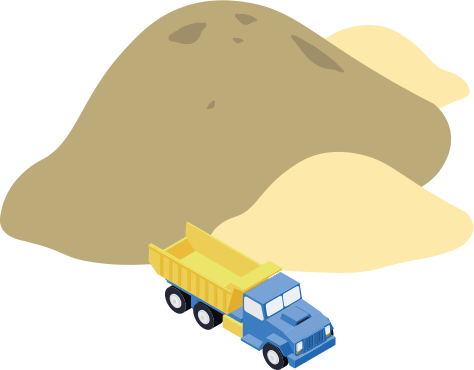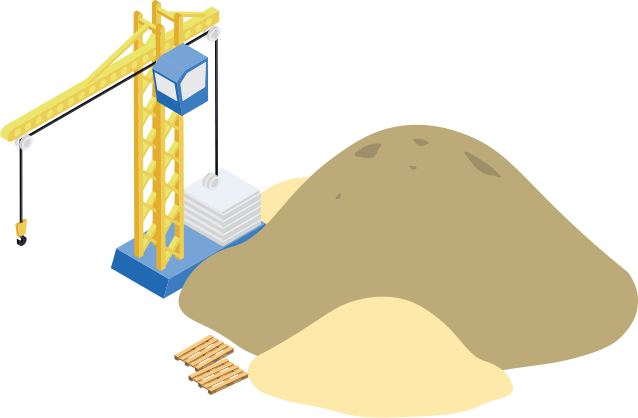I love metaphors. A great way to explain the unfamiliar is by referring to the familiar.
So, just imagine the following scenario: Suppose you wanted to buy a car (website). Now suppose that there was no such thing as makes or models. Every car was unique. There was no such thing as Blue Book pricing. You couldn’t find out what features a car had, or even whether it was new or used.
Sounds mad, right?
Welcome to my world.
PLEASE DON’T SQUEEZE THE WEBSITE
If you are buying a car, you probably aren’t going to walk onto some random car lot, randomly pick one car out, drive it around the block, and buy it.
Major purchases almost always involve comparison shopping.
To comparison shop, you have to have a basis for comparison. Engine size, comfort, reliability, extras – there is a whole pile of things you can use, besides the price of course, to compare.
What bases do you have for comparing websites, or even the companies that produce them?
Most of the time, when someone goes to buy a website, they have very little in the way of useful information for purposes of comparison.
This isn’t an accident.
If you think about it, there are products and services where it seems the ability to compare is deliberately obscured. I’ll tell you one of my favorites. Did you ever try to figure out which was the best deal, buying toilet paper?
If you are selling smoke and mirrors, truth in advertising is not going to be a priority. So you are left trying to compare so many square feet of how-many ply tissues of what size and “ultra-soft” versus “super-absorbent.”
Am I making too fine a point? I don’t think so.
I’ve said this many times, the vast majority of website developers are amateurs.
What are they actually selling? Mostly it’s about as clear and accurate as the “information” on the toilet paper packages.
So what are the benchmarks, the actual useful data to use in comparing websites?
If you are purchasing a website, what’s important?
In my view, these are the big picture, top-level, factual differences between one website and another:
- Marketing suitability.
- Look and feel.
- Security.
- Ease of maintenance.
- ROBUSTNESS (I’ll explain).
SUITABILITY
The number one item to consider has to be: Are you going to end up with a website that is suitable for its intended purpose. Before you decide to buy a vehicle, you have to consider what it is going to be used for.
If it is mainly for commuting to work, you probably don’t want an 18-wheeler. A motorcycle is not serviceable for a soccer mom.
So here’s where the rubber truly meets the road: How do you know if you are going to get something appropriate? Since websites are usually for a marketing purpose, if you are not a marketing person, you’d better hire someone that DOES know marketing to do your website.
Hint: Most website developers don’t know anything about marketing. If they don’t talk to you about what your website is for, who your customers are and what the competition is doing, there’s a reason for that. It’s not in their comfort zone. You might end up with a beautiful website that lays a complete egg.
LOOK AND FEEL
A website should look good.
That hardly seems like an extreme requirement.
But just as most website developers aren’t marketers, most aren’t artists either.
Their problem should be made easier by the availability of tens of thousands of preexisting designs – called themes or templates – to choose from.
If you look closely at your prospective vendors’ websites, you are nevertheless likely to be shocked to see things that just don’t look right, are ugly or weird. Well, guess, what, the theme creators aren’t artists either, and there’s still a lot of work the developer has to do to produce a finished website.
This is like “fit and finish” in kitchen cabinets. If the contractors’ cabinet doors don’t quite fit right? Yours probably won’t either.
SECURITY
Online security is a big deal, you know this. Thousands of websites get hacked every day. If your developer doesn’t handle this well, you can wake up one day with your website destroyed and no way to recover.
Your best clue to someone’s competence in this area is by how they handle security in general. Do they have a well-written contract? Is their proposal detailed and specific? How do they handle your credit card data?
Ask questions about how they secure login data and whether the people who work for them are bound by non-disclosure agreements.
If they are careless about things like this, they are probably careless about website security too. But ask them: What measures do they take to prevent your website being hacked, or if it is, to ensure it is quickly and thoroughly recovered (Any website can be hacked if someone works hard enough at it)?
EASE OF MAINTENANCE
So you’re very happy with how your website looks and works.
Is it going to remain unchanged forever? Unlikely. Yet a website can be built – many are – in such a way that it is very difficult to maintain or make changes. Some things may be impossible.
This is one of the potential flaws in using pre-built themes, as many of them are not modification friendly. I’ve seen a theme that would allow 6 icons across on a page, but it was impossible to make 7. Literally impossible without rebuilding the site from scratch. Pretty silly, right?
A custom design can be just as bad.
Ask your vendor.
ROBUSTNESS
“Robust” is a term of art in this business. It refers to the ability of the site to stand up to changes and still be useful.
The internet is the fastest-changing environment in the history of the world. A six-year-old website is like an 80-year-old man. Technology is rapidly changing. Styles are rapidly changing.
How would you like to have to completely redo your website in three years because it is already obsolete? Or have a website require major work because it is moved from one hosting service to another? It’s happened.
One of the reasons we do most of our work in WordPress is because of this factor. The WordPress universe almost automatically updates itself to keep up with changes. But it’s not proof against idiocy.
One of the main disadvantages of custom coded websites is every technological change has to be addressed individually and manually.
Again, some judicious questioning can save you from a serious error.
CAVEAT EMPTOR
As always, the takeaway is “Let The Buyer Beware.” Notice I haven’t mentioned comparing prices. When it comes to websites, that’s hopeless. Compare these five factors. Then decide how much you’re willing to spend to get how good at them. Maybe you’ll end up with more than one company on your shortlist – but I’d be surprised.
Sad, but most website developers are neither knowledgeable nor far-sighted enough.








